
Thomas Northcut/DigitalVision/Getty Images
Fiber is the nondigestible part of plant foods. The recommended fiber intake for adults is 25 to 30 g per day, according to the University of Virginia Health System. Because many people do not eat enough fiber, supplements are available to help boost the intake. One option is Benefiber from Novartis Pharmaceuticals Corporation, a supplement which contains the natural water-soluble fiber wheat dextrin.
Features
Benefiber is available in powder, chewable tablets and caplets. The original powder is sugar-free and tasteless, and it dissolves completely and does not thicken. These features make it suitable for adding to beverages, although it does not dissolve well in carbonated beverages, according to the Benefiber official website. You also can add Benefiber powder to soft foods. Benefiber stick packs for placing in water are available in flavors such as cherry pomegranate and kiwi strawberry.
Function
Water-soluble fiber forms a gel when mixed with liquid. In the intestines, soluble fiber adds bulk to the stool and helps move it through the intestinal tract, explains the University of Virginia Health System. Natural fiber supplements, such as psyllium, methylcellulose and wheat dextrin, are mainly used for relieving occasional constipation, but may have other health benefits as well, such as relieving symptoms of irritable bowel syndrome. Psyllium in particular is often promoted as a cholesterol-lowering agent.
Potential
Soluble fiber can interfere with absorption of cholesterol into the bloodstream, explains the Mayo Clinic. You'll need 5 to 10 g or more a day including food and supplements to decrease your low-density lipoprotein, or LDL, cholesterol, the so-called bad cholesterol.
Expert Insight
Although some websites promoting psyllium claim wheat dextrin is not beneficial for reducing cholesterol, research published in January 2009 indicates differently. Lead author J.L. Slavin and his colleagues completed a review of studies published by the "Journal of International Medical Research," noting that individuals who do not consume enough dietary fiber benefit from taking soluble fiber supplements, including wheat dextrin. These supplements help regulate the digestive system, may prevent several digestive disorders and may increase absorption of nutrients. They also stabilize blood sugar levels and reduce serum lipids, which include cholesterol and triglycerides.
Caution
Benefiber is considered gluten-free as defined by the U.S. Food and Drug Administration, notes the Benefiber official website. Because it does contain a minute amount of gluten, the manufacturer recommends that people intolerant to gluten not consume Benefiber products unless a doctor approves. In addition, fiber supplements interfere with the absorption of some medications, so take medicine at least two hours before or after consuming Benefiber.
Related Articles
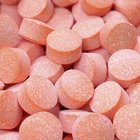
Benefiber Ingredients
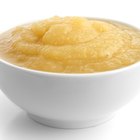
Benefiber as an Appetite Suppressant

Metamucil Clear & Natural

Nutrition Information on Blueberries

Metamucil Dosage for Cats

The Nutrition of 15-Bean Soup

Difference Between Canned Pumpkin & ...

Nutrition Drinks for Diabetics

What Is the Nutritional Value of Wheat?
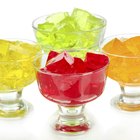
Fat-Free and Sugar-Free Jell-O Pudding ...

What Is Agave Syrup?

What Is Green Magma?

Nutritional Value of Garlic Powder Vs. ...
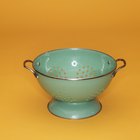
How to Soak Amaranth
Is Nutritional Yeast Gluten Free?
How Many Calories are in Pistachio ...
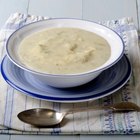
Potato Leek Soup Nutrition
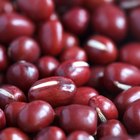
Nutrition Information for Adzuki Beans

The Best Fiber Supplements for Men

Gluten- and Wheat-Free Fiber Supplements
References
Writer Bio
Shelley Moore is a journalist and award-winning short-story writer. She specializes in writing about personal development, health, careers and personal finance. Moore has been published in "Family Circle" magazine and the "Milwaukee Sentinel" newspaper, along with numerous other national and regional magazines, daily and weekly newspapers and corporate publications. She has a Bachelor of Science in psychology.
Photo Credits
Thomas Northcut/DigitalVision/Getty Images